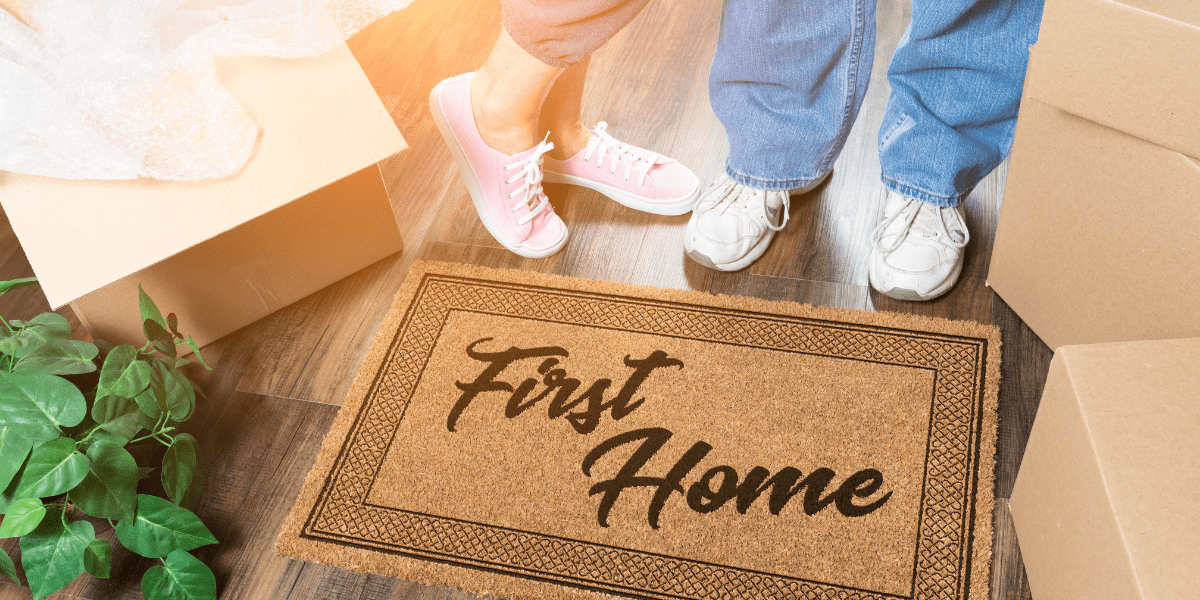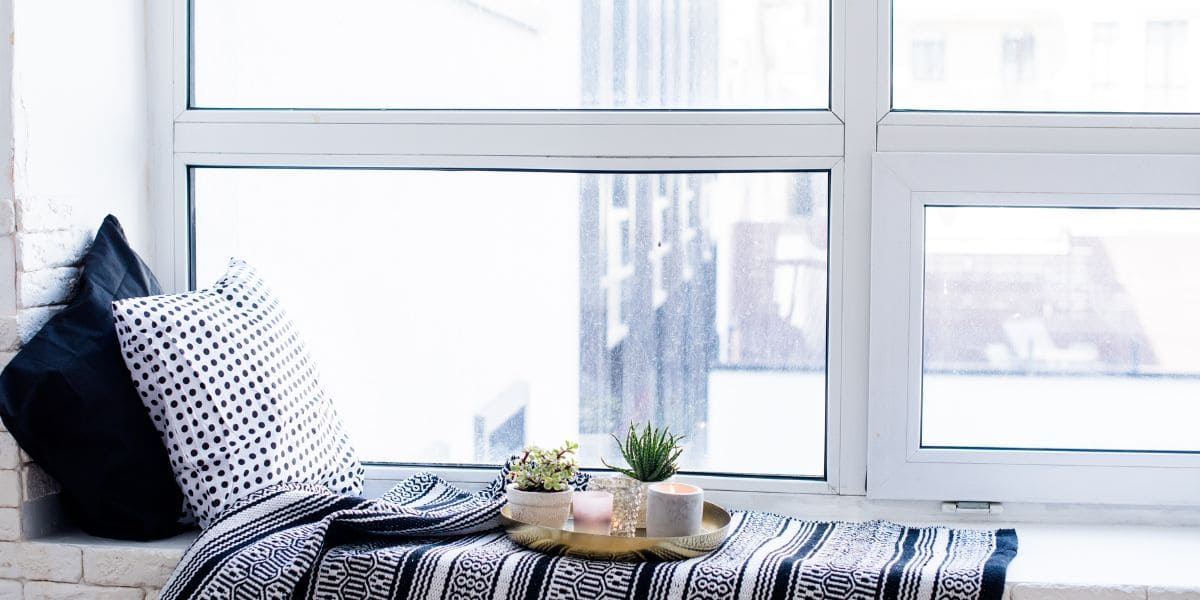Considering buying your first home? Congratulations! We're serving up some piping-hot advice for first-time home buyers! Buying your first home can be an exciting and nerve-wracking experience, but it can also be gratifying with the right information and guidance. Owning a home can change the trajectory of your life and your daily experience. So sit back, grab a cup of coffee, and let's dive into the world of home buying, where we'll cover everything from financing options and market research to home inspections and maintenance. At Country Classics, we're passionate about building communities that people are proud to call home, and we're excited to share our expertise with you. Let's get started!
First-Time Home Buyer’s Pre-purchase Primer
Market Research is a Must
Before diving into the home-buying process, you must do your market research to ensure you make an informed decision. Market research allows you to understand the current real estate market trends and conditions in the area you're interested in. By analyzing market data, you can determine the average price range of homes, identify the most desirable neighborhoods, and discover any potential issues that could impact your investment in the long run. You can also compare the prices of similar properties to ensure you get a fair deal. Doing your market research is a crucial step to help you make a more informed and confident decision when purchasing your very first home.
Home Financing Options
As a first-time homebuyer in New Jersey, there are various financing options available to you. The New Jersey Housing and Mortgage Finance Agency offers various programs, including down payment assistance, first-time homebuyer assistance, and low-interest mortgages. The Federal Housing Administration also offers loans with low down payment requirements, making homeownership more accessible. Additionally, many banks and credit unions offer first-time homebuyer programs with favorable interest rates and terms. It's important to explore all your options and work with a reputable lender to find the best financing solution for your specific needs and budget.
Pre-qualify for Peace of Mind
Pre-qualifying for a mortgage is an essential step in the home-buying process. It involves meeting with a lender to determine how much you can afford to borrow based on your income, credit score, and other financial factors. Pre-qualifying can give you a good idea of what you can realistically afford, so you can narrow your search to homes within your price range. It also shows sellers that you're serious about buying and can strengthen your negotiating position. Additionally, pre-qualifying can help identify any potential issues with your credit or finances that may need to be addressed before you apply for a mortgage, allowing you to make any necessary changes to improve your chances of approval.
How Much Money Do I Need to Save to Buy a House?
The amount of money a first-time homebuyer needs to buy a house can vary depending on several factors, including the location and price of the home, the type of mortgage, and the buyer's financial situation. Most lenders generally require a down payment of at least 3% to 20% of the home's purchase price. Additionally, buyers should be prepared to pay for closing costs, including fees for things like home inspections, appraisals, and title insurance, and can add up to 2-5% of the home's purchase price. It's also important to have some cash reserves on hand for unexpected expenses and repairs that may arise after purchasing the home.
Questions to Ask Your Lender When Purchasing Your First Home
Securing a mortgage is a critical step in the home-buying process, and it's important to ask your lender the right questions to make an informed decision. Here are some important questions to consider:
-
What are the different types of mortgages available to me, and which one is best suited for my financial situation and budget?
-
What is the interest rate and how is it calculated? Can I lock in the interest rate, and if so, what are the terms?
-
What are the closing costs, and how much can I expect to pay? Are there any fees that can be negotiated or waived?
-
What is the minimum down payment required, and are there any down payment assistance programs available?
-
What is the minimum credit score required to qualify for the mortgage, and how does my credit score affect the interest rate and other terms of the loan?
-
What is the timeline for the loan process, and what documents will I need to provide?
-
Are there any prepayment penalties, and can I make extra payments to pay off the loan faster without incurring any fees?
-
What happens if I miss a payment or fall behind on my mortgage payments?
Questions to Ask Your Real Estate Agent
Your real estate agent can be an invaluable resource when searching for your first home. Here are some important questions to ask your real estate agent before you work together and as you narrow down your focus to specific properties.
-
What neighborhoods or areas do you recommend based on my budget, lifestyle, and preferences?
-
What types of homes are available in my price range, and what are the pros and cons of each option?
-
How long has the home been on the market, and what is the seller's motivation for selling?
-
What is the average price per square foot in the area, and how does the home's price compare to similar properties in the area?
-
What is the home's condition, and are there any major repairs or renovations that need to be done?
-
Are there any issues with the home's title or any liens on the property?
-
How many offers have been made on the property, and what is the likelihood of a bidding war?
-
What are the contingencies and deadlines for the purchase agreement, and what happens if any of these are not met?
-
Can you recommend a reputable home inspector or other professionals I may need to work with during the home-buying process?
-
What is your commission, and how and when will you be paid?
Home Inspections Are Important
A home inspection is a crucial step in the home-buying process, and it's important to have one done before purchasing your first home. A home inspection is an objective evaluation of a home's condition by a licensed professional. It can identify any issues or potential problems with the home that may not be visible to the naked eye. A thorough inspection can reveal problems with the foundation, electrical systems, plumbing, HVAC, roofing, and other major components of the home, giving you an idea of the repairs or maintenance that may be needed in the near future. This information can help you negotiate with the seller to lower the price or request that repairs be made before the sale is final. Sometimes, a home inspection may uncover such severe issues that you may choose not to move forward with the purchase altogether, potentially saving you thousands of dollars in the long run.
New Homeowner’s Checklist
If you’ve recently purchased your first New Jersey home, congratulations! Here are a few vital checklist items to keep your home in tip-top shape.
Maintenance Matters
As a new homeowner, it's important to understand the importance of seasonal and routine maintenance to keep your home in good condition and prevent costly repairs down the line. Here are some reasons why:
-
Preventative maintenance can save you money: By performing regular maintenance tasks, such as cleaning gutters, changing air filters, and inspecting your roof, you can catch minor issues before they become major problems that require expensive repairs.
-
Safety: Regular maintenance can ensure that your home is safe for you and your family to live in. For example, checking your smoke detectors and carbon monoxide detectors and replacing batteries can help prevent fires and carbon monoxide poisoning.
-
Preserve the value of your home: Regular maintenance can help preserve the value of your home and protect your investment. Homes that are well-maintained tend to sell for higher prices than those that are not.
-
Comfort: Seasonal maintenance tasks, such as servicing your HVAC system, can ensure that your home is comfortable year-round.
-
Legal requirements: Some types of maintenance, such as cleaning your chimney, may be required by local laws and regulations.
Some examples of seasonal and routine maintenance tasks include:
-
Cleaning gutters in the fall
-
Winterizing your home before cold weather arrives
-
Servicing your HVAC system twice a year
-
Checking and replacing air filters regularly
-
Testing smoke detectors and carbon monoxide detectors regularly
-
Inspecting your roof and repairing any damage
-
Cleaning and maintaining appliances
-
Testing and repairing any leaks in plumbing or electrical systems
Enjoy Owning a Home!
Owning your own home can bring many benefits, including:
-
Building equity: Each mortgage payment you make helps to build equity in your home, which is the difference between what you owe on your mortgage and the current value of your home. Over time, as your home increases in value and you pay down your mortgage, your equity will grow.
-
Stability: Owning your own home can provide a sense of stability and security. You don't have to worry about rent increases or moving unexpectedly, and you can change your home to suit your needs and preferences.
-
Tax benefits: Homeowners can often deduct mortgage interest and property taxes from their income taxes, which can help reduce their overall tax burden.
-
Freedom: Homeownership provides a sense of freedom and control over your living space. You can decorate, renovate, and make changes to your home without getting permission from a landlord. Your home is yours to modify as you see fit!
-
Community: Homeownership can provide a sense of community and belonging in a neighborhood or community. Homeowners may become more invested in their community and feel a greater sense of pride in their home and their surroundings.
-
Long-term financial benefits: Over time, as your home increases in value, it can provide a valuable asset for your retirement or estate planning.
Country Classics Builds Your First Forever Home in New Jersey
Country Classics would love to welcome you home to our friendly, expertly-executed community, we encourage you to check out the homes available in our Frenchtown development. At Country Classics, we're committed to building high-quality, energy-efficient homes that are designed with your comfort and lifestyle in mind. Contact us today to learn more about our available homes and to schedule a visit to our community. We look forward to helping you find the perfect place to put down roots!
















Leave a Comment